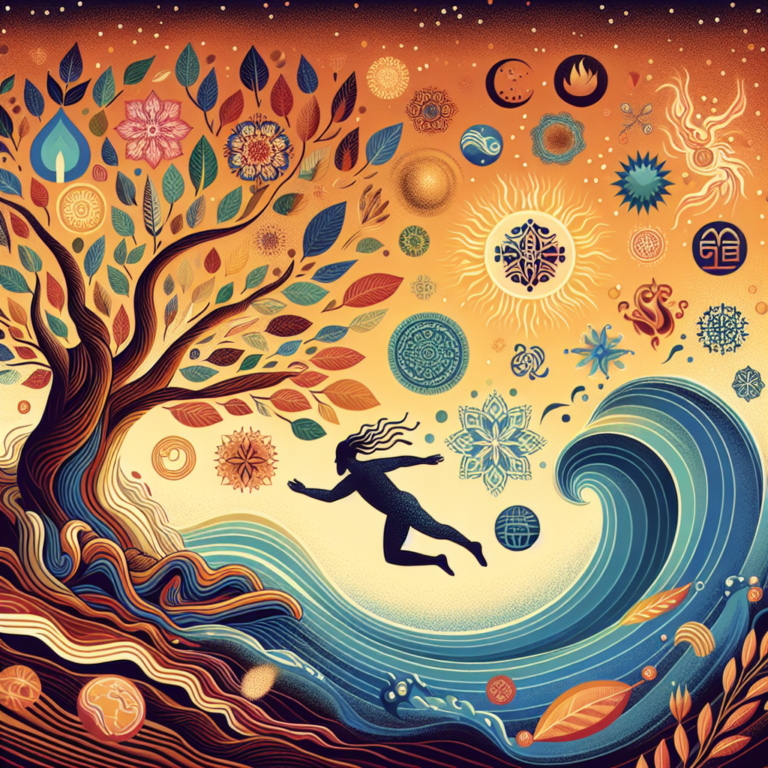The concept of instant karma suggests a fascinating interplay between actions and their repercussions, emphasizing that living justly often leads to immediate outcomes. In various cultures and philosophies, the idea of reaping what you sow resonates profoundly. In today’s world, where the narrative of justice is sometimes diluted, the occurrences of instant karma remind us that accountability isn’t always delayed; it can manifest swiftly.
Understanding Karma
Karma, derived from the Sanskrit word “Karman,” which means “action” or “deed,” is a foundational concept in many Eastern religions, including Hinduism and Buddhism. It posits that every action has consequences—positive or negative—that will eventually return to the doer.
While traditional karma may not always yield immediate results, the notion of instant karma operates under the premise that the universe—or life itself—has a way of delivering justice without long delays. This can happen in remarkable, often humorous ways.
Philosophical Background
Philosophically, the principles of karma align with various moral teachings around the world. Many cultures espouse a form of ethical reciprocity, where good deeds are rewarded and bad actions bring about swift repercussions. This is not merely about cosmic justice, but also about the social fabric that weaves together human relationships.
Instant Karma in Everyday Life
Instant karma can manifest in myriad ways, from everyday occurrences to extraordinary events. It usually involves people experiencing the unexpected consequences of their actions shortly after committing them.
- Public Misbehavior: Individuals who engage in rude or harmful behavior may find themselves the recipients of karma almost immediately. For instance, a person who cuts in line might trip and fall immediately after, garnering the sympathy of those they wronged.
- Dishonest Transactions: A scamming individual could quickly discover their deception when outsmarted by a sharper competitor or when their fraudulent activities lead to immediate legal issues.
- Kind Gestures: On the flip side, someone who performs an act of kindness may find unexpected rewards come their way shortly thereafter, creating a ripple effect of goodwill.
Examples of Instant Karma
Real-life instances of instant karma can be found across various contexts—social media, news outlets, or simply anecdotes shared among friends. The stories often serve not just as entertainment but as moral lessons underlying the concept of justice.
Viral Videos and Stories
The age of social media has given rise to countless viral videos showcasing instant karma in action. These clips often depict a wrongdoer receiving immediate retribution, and the resulting public reaction can be quite telling.
For instance, a famous video circulating online showed a man who had just purposely knocked over a cyclist. Seconds later, he slipped on the spilled bike’s contents, falling flat on his back. The immediate laughter and satisfaction from viewers exemplified society’s desire for justice.
Humorous Outcomes
Sometimes instant karma comes wrapped in humor. A person who has spent an evening bragging about their driving skills may find themselves getting a flat tire shortly thereafter. The irony isn’t lost on observers, and such stories often become anecdotes illustrating human folly.
The Psychological Aspect of Instant Karma
Beyond philosophical and anecdotal lenses, the psychology behind witnessing or experiencing instant karma sheds light on human behavior. When individuals observe others facing immediate consequences for their actions, it often reinforces societal norms and personal moral compasses.
Reinforcement of Social Norms
Instant karma can serve as a powerful reinforcer of social norms. When people see bad behavior punished swiftly, it encourages conformity to acceptable behaviors. This psychological reinforcement underscores a collective understanding that accountability is vital in upholding community standards.
Personal Reflection
The experience of instant karma also invites introspection. Witnessing justice unfold can lead to a heightened awareness of one’s actions, promoting reflection on personal conduct. This reflective process can foster growth and lead individuals to make more constructive choices moving forward.
Instant Karma in Literature and Media
The theme of instant karma has been prevalent in literature and media throughout history. From ancient parables to contemporary storytelling, creators have leveraged this motif to convey moral lessons.
Classic Literature
Fables and parables often illustrate the consequences of actions in vivid detail. These stories reinforce the notion that life does not allow immoral behavior to go unpunished forever. For example, Aesop’s Fables frequently depict characters receiving their comeuppance, serving both entertainment and moral instruction.
Modern Media
In modern cinema and television, films often capture the essence of instant karma. Movies that revolve around vengeance or divine justice frequently culminate in moments where characters face the consequences of their misdeeds, often leading to dramatic climaxes.
Cultural Perspectives on Instant Karma
Different cultures interpret and express the concept of instant karma through unique lenses, reflecting their beliefs and values. These cultural perspectives enrich the understanding of how the principle manifests globally.
In many Eastern philosophies, karma operates under a broader understanding of reincarnation, where one’s actions in this life affect future lives. However, the idea of instant justice is also present, particularly in Buddhist teachings, which emphasize mindfulness and the immediate impact of actions.
In Western cultures, the concept of karma is often colloquially referenced even by those unfamiliar with its deeper philosophical roots. Phrases like “what goes around comes around” reflect the acknowledgment of some form of moral justice, albeit not necessarily tied to reincarnation.
The Role of Humor in Instant Karma
Interestingly, humor plays a significant role in the perception of instant karma. Many stories highlight the absurdity or irony of situations where justice is served swiftly, making them memorable and shareable.
The comedic element arising from the unexpected consequences of bad behavior—smoothly delivering justice—can lead to a shared laughter among observers. This communal enjoyment reaffirms societal values while providing entertainment, making the burn of karma more bearable.
Why Do We Crave Instant Karma?
The longing for immediate justice reflects deeper desires for fairness and accountability. Society often feels limited when traditional justice systems fail to address wrongdoing, and instant karma fulfills that yearning. There’s a psychological satisfaction in seeing wrongs righted quickly.
In an unpredictable world, the yearning for instant karma caters to the desire for control over outcomes. When individuals witness bad behavior met with immediate consequences, it creates a comforting narrative, allowing them to feel that justice exists even in chaotic circumstances.
Moreover, the amplification of instant karma within communities serves a primal urge to uphold societal standards. It represents the collective desire to see righteousness prevail over wrongs, functioning as both a social check and a reminder of the ethics that bind communities together.
Conclusion
In a world often viewed as unjust, the concept of instant karma offers a refreshing narrative that action and consequence are intertwined. Instant karma serves not only as a humorous anecdote to share but as a poignant reminder of the moral responsibilities we each hold. From everyday scenarios to cultural manifestations, the longing for fairness and acknowledgment of accountability persists across humanity.
The stories we share about instant karma illustrate compelling lessons in ethics, entice reflection, and remind us that our actions possess ripple effects. So next time you find yourself chuckling over a tale of instant karma, remember: it’s more than just an entertaining moment; it’s life’s way of teaching us valuable truths about justice and our shared humanity.
FAQs
What is instant karma?
Instant karma refers to the concept of immediate consequences resulting from one’s actions, often highlighting the notion that unfavorable actions can lead swiftly to negative repercussions.
Is instant karma a real phenomenon?
While there’s no scientific basis for instant karma existing, many people share anecdotes and stories that suggest a pattern, creating a cultural narrative around swift justice.
How is instant karma different from traditional karma?
Traditional karma is rooted in a broader and often longer-term perspective of actions and their consequences, sometimes spanning multiple lifetimes. Instant karma focuses on immediate effects in a given situation.
Why do people find instant karma amusing?
Many find instant karma entertaining due to its humorous and ironic nature, allowing for moments of satisfaction when wrongdoers face swift repercussions. This aligns with our collective desire for fairness and justice.
Can instant karma promote good behavior?
Yes, witnessing instances of instant karma can reinforce the values of accountability and ethical conduct in individuals, encouraging positive behavior in society.
It looks like you entered “Prompt.” Could you please provide more details or specify what you would like assistance with? Whether it’s writing, brainstorming ideas, or answering questions, I’m here to help!, #Instant #Karma #Life #Serves #Justice #Fast, #Instant #Karma #Life #Serves #Justice #Fast, 1736123365, instant-karma-when-life-serves-justice-fast





